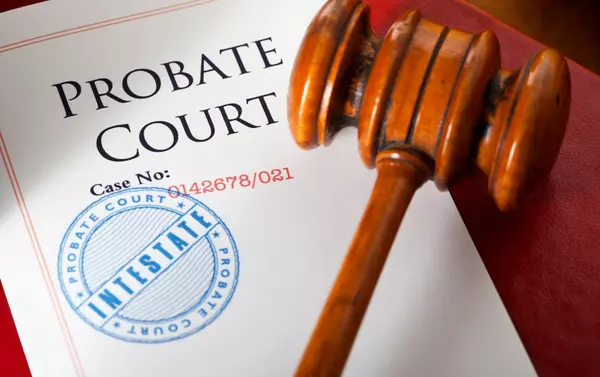THE 6 BASICS STEPS OF PROBATE

File a Petition with the Probate Court
You'll have to file a request in the county where the deceased person lived at the time of their death. In addition you will need to file a valid will, if one exist, and the death certificate.

Give Notice
You'll need to mail a notice that the estate is in probate to all creditors, beneficiaries and heirs (as required by court) Some states may require you to publish a notice in the newspaper.

Collect inventory and appraise all assets that are subject to probate and present them to the court.
- Bank Accounts
- Retirement Accounts
- Stocks & Bonds
- Real Estate
- Valuable items

Handle Bills & Debts
Collect money owed to the estate, such as outstanding paychecks/rents. Review outstanding bills/debts. Decide whether/how they must be paid. You will need to ensure the estate's all debts. Pay Taxes

Distribution of Assets
With all claims, debts and expenses paid, you'll give the remaining property to the rightful heirs and/or as the will/court directs.

Close the Estate
Once everything has been distributed, you'll submit receipts and records of everything to the court then ask for the estate to be closed and to be released for the role executor.
Sell your house in 3 easy steps

Let's Talk
Our property specialist will give you a free, no-obligation consultation at your convenience.

Get a Fair CASH Offer
You sell directly to us. That means absolutely no expensive real estate agent commissions.

A Fast Cash Closing
Avoid the hassle of showings and open houses. We can close as quickly, or as slowly, as you want.
How Long Does Probate Take?
According to Leonard Ang, the CEO of iPropertyManagement, the probate “process can take anywhere from a few months to a year, as there are many different assets and property laws to consider.” On average, however, the process can take as long as two years.
The typical probate process can be affected by the number of heirs, any issues with the execution of the will, and any taxes or debts attached to the property. Additionally, the state and local laws where the property is located could impact the overall timeline. Probate can extend for so long because the various legal proceedings associated with the process take time.
In some cases, probate can take as little as six months, though this is not always the norm. Investors who have worked with probate properties may be aware: but the presence of a will can speed things along greatly. The reason being, a will signals that the property has already been assigned to a specific beneficiary. That heir can then decide how to move forward with the property.

Intestate Probate
Intestate is a word used to describe someone who dies without a legal will. If said person were a homeowner, various legal proceedings would follow to determine what happens to the property. This process is called intestate probate, and for the most part, means courts control the selling process of the home in question. Intestate probate is regulated on a state level, though it follows the same basic steps.
After the homeowner passes, the executor of the estate will initiate the sale of the house. This typically involves working with a probate real estate agent or broker. Most executors will choose to work with an experienced agent or team who possess a Certified Probate Real Estate Specialist (CPRES) certification because they will be more familiar with the subsequent court processes. While marketing the property may be similar to a traditional property, the various legal proceedings associated with probate real estate will need to begin once an offer is made.

4 KEY STEPS OF THE PROBATE PROCESS
STEP 1
Executor Of The Estate: For the probate process to begin, an Executor of the estate must be appointed. Typically, the Executor is named in a decedent’s will, but if not, the court will appoint an Administrator to fulfill the role. The will includes whether or not an heir will inherit the property or if it will be sold.
STEP 3
Property Listing: After the listing price is established, the property will then be put on the market. The real estate agent working with the property will market it like any other home, using signage, websites, and more to attract a high offer.
STEP 4
Approval And Sale: Once an offer is submitted, the real estate agent will negotiate the terms to satisfy both parties. An official notice will be mailed to all heirs of the estate, establishing a 15 day period to object to the property’s sale. If there are no objections, a court date will be scheduled where the sale of the house will be officially executed.



